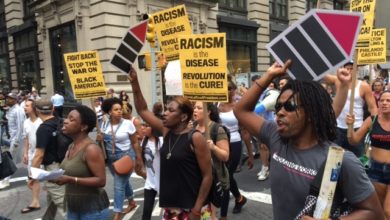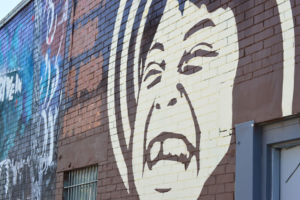
For over two years now the neighborhood of Duranguito in El Paso, Texas has been the center of a controversial battle to preserve the area and resist gentrification. Duranguito is the oldest neighborhood in the entire city and is a place of historical importance for the people of and around the area.
Selfa Chew, former resident says, “Duranguito means history, it means community, and it means love.” Plans to destroy the neighborhood in order to build a new soccer arena are the cause of the rising tensions.
“The landlords, they are always making money money money, but for whom?” asked Angie Martinez, who grew up in Duranguito.
Originally El Pasoans were asked if they wanted a “multicultural center,” however they did not know it would replace Duranguito or that it would actually be a soccer arena. “The ballot was very vague, it was strategic,” said Maria Salazar, activist with Paso Del Sur.
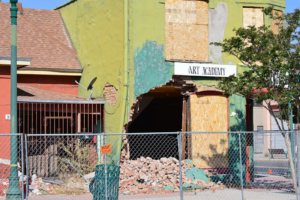
The tensions grew to their highest on September 11, 2017 after demolition crews threatened to tear down buildings in the downtown neighborhood, in violation of a protective ordinance that was supposed to halt this action, and in despite of the human blockade made by Duranguito activists.
The next day however the last two remaining residents of Duranguito, Antonia “Tonita” Morales and Romelia Mendoza, woke up to demolition crews tearing down buildings near their homes. Joined by Yolanda Chavez Leyva, the three women went in front of the bulldozers and resisted. “It was horrible…they just looked at us and mocked us.”
When a handful of activists went out to protest the demolition they were met with the force of about four dozen riot police, who fenced the activists in with the buildings and would not allow food or water to be given to them.
Leyva said, “I cried every day for six weeks after, the trauma of being fenced in was very hard to overcome. In the borderlands that idea of walls and fences is very hard for us.”
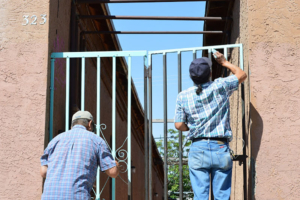
On April 27, volunteers from all around El Paso went out and painted gates, planted community gardens, and demonstrated their resistance through beautification. Some people went out to honor their heritage in the neighborhood. “I’ve never forgotten where I was raised, Duranguito is part of my grandmother, my mother, when I am here it is like they are still here, I am doing this for them,” said one person.
Others came out for the historical facets that the neighborhood possesses: “This is the first and most historic barrio [neighborhood] in El Paso and we are here making the community beautiful again.”
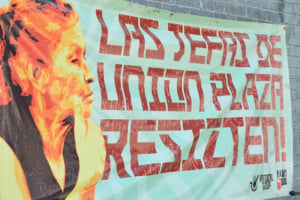
Some older folks sat and watched the beautification and reminisced about the neighborhood of their childhood saying, “Duranguito was a safe haven, back when segregation was law, este barrio [this neighborhood] was the only place where Black people could find peace.”
The people in Duranguito recognize this need to resist gentrification as to not lose their heritage. Salazar enforced this point, saying, “This gentrification here in Duranguito is racism…it also affects our women, and we really look up to our women leadership…” She continued, “They are our pillars of resistance.”
A woman who chose to not be named called out the bourgeois businessman mayor of El Paso, Donald ‘Dee’ Margo and said, “He is telling us that it is better for this place to look like Las Vegas than for us to stay Mexicano.” Leyva compared the tactics of police officers making defendants look unkept before a court hearing to what the mayor is doing to Duranguito: “They throw trash here and no one ever comes around to clean anymore,” she said, adding, “They want us to hate it.”
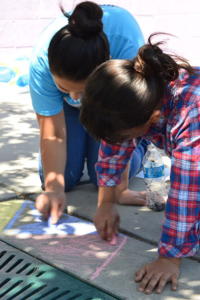
Every Saturday starting from April 21, Paso Del Sur plans to host beautification events in Duranguito “to make this neighborhood beautiful like how it used to be, to undo the neglect of the landlords,” said Leyva.
Paso Del Sur along with other small organizations such as Radical Soup, a collective of anti-capitalists, and artists have been working to make Duranguito alive again, hanging up informational posters, painting murals, yarn bombing trees, and various other forms of street art.
Although Paso Del Sur and the people of Duranguito come from all different contexts and walks of life one thing remains true for them: “Duranguito es nuestra resistencia, we consider it moral to be doing this.”




